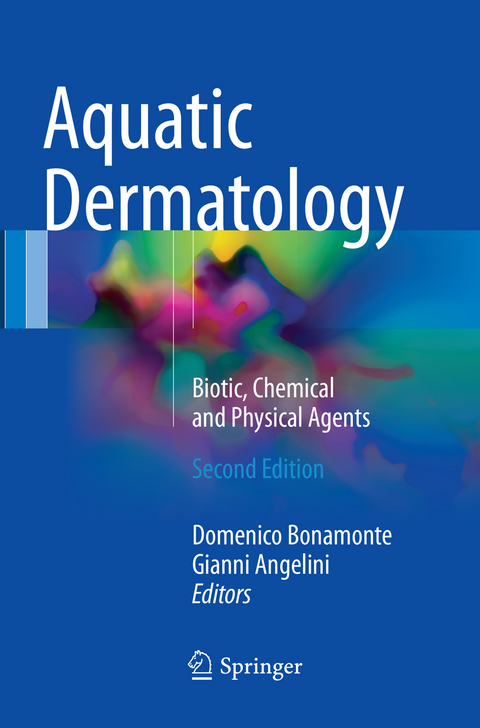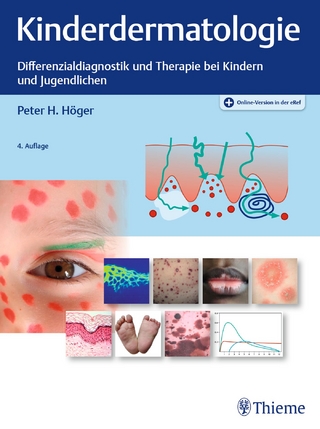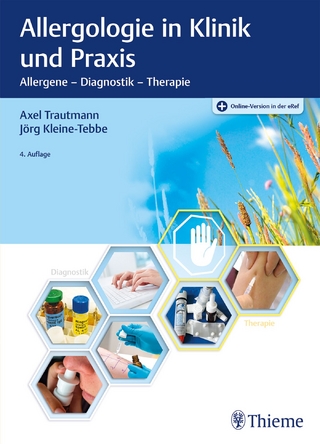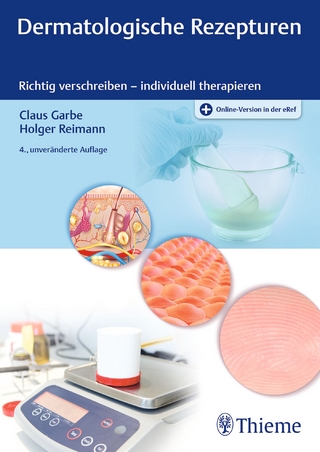
Aquatic Dermatology
Springer International Publishing (Verlag)
978-3-319-82138-2 (ISBN)
This well-illustrated quick reference book, now in its second edition, is a comprehensive guide to the aquatic skin diseases caused by biotic and non-biotic noxae. It will assist the dermatologist in recognizing and treating a host of unfamiliar conditions that are nevertheless steadily increasing in prevalence owing to wider use of the hydrosphere for holiday, sport, and occupational activities throughout the year. Beyond the thorough examination of the dermatoses caused by a wide range of organisms such as jellyfish, sea anemones, echinoderms, molluscs, algae, aquatic worms, and fish, attention is drawn to potential systemic reactions, which can be serious or even fatal. In addition, the entire spectrum of wound infections and reactions due to microscopic organisms populating the aquatic environment, e.g., mycobacteria, streptococci, Aeromonas, and vibrios, is considered. Finally, detailed attention is paid to the many other conditions linked to salt or freshwater contact, including aquagenic urticaria and pruritus, chlorine irritation, contact dermatitis from swimming or diving equipment, surfer's nodules, and chemical conjunctivitis. Aquatic Dermatology will be a quick reference to improve knowledge of the aquatic environment and its risks, and a useful tool to clinicians and professionals practicing in coastal and marine areas.
Professor Gianni Angelini is Full Professor of Clinical Dermatology and Venereal Diseases, at the University of Bari, Italy. After his MD and his specialization in Dermatology and Venereal Diseases, he was there appointed Head of the 2nd Dermatological Clinical Division, then moving to lead the 1rst Division unitl his retirement in 2014. He is Member of the Editorial Board of various International and Italian Dermatological Journals, Past President of the Italian society for Professional and Environmental Allergology and Dermatology. Gianni Angelini is author of over 600 scientific publications, including books on General Dermatology, Allergological and Professional Dermatology, Aquatic Dermatology, monographs and chapters in volumes on Dermatology, Immunology, Occupational Medicine and Internal Medicine. His main research interests include the areas of immunologic, allergic and environmental diseases, and in particular contact dermatitis, professional dermatitis due to physical, chemical and biotic agents, aquatic dermatology, drug-induced dermatitis and urticaria. After his degree in Medicine and Surgery, Professor Domenico Bonamonte specialised in Dermatology and Venereology, also gaining his PhD in Allergology and becoming Research Fellow at the Dermatology Clinic of Bari University. Since March 2013, he is Associate Professor of Dermatology and Venereology, University of Bari. He is active participant in research activities at the Dermatology Clinic of Bari University Hospital, and co-author or author of many scientific publications, including articles, monographs and book chapters. His scientific production, consists of experimental, clinico-experimental and clinical studies, investigates various fields in Dermatology, paying special attention to etiopathogenetic aspects. He has been carrying out in-depth studies in the areas of contact dermatitis, both occupational and non, occupational dermatoses, aquatic dermatitis (prevalently of marine origin), dermatitis in sports environment, inherited bullous epidermolysis and pediatric dermatology.
Preface.- 1 Introduction and general principles.- 2 The aquatic environment and its biotoxins: Toxic aquatic animals.- 3 The aquatic environment and the function of biotoxins.- 4 Biochemistry of biotoxins in the aquatic environment.- 5 Dermatitis caused by Coelenterates: Coelenterates nematocysts.- 6 Dermatitis caused by Coelenterates: Nematocyst poison.- 7 Dermatitis caused by Coelenterates: Reactions to jellyfish.- 8 Dermatitis caused by Coelenterates: Reactions to sea anemones.- 9 Seabather's eruption.- 10 Dermatitis caused by Coelenterates: Reactions to physaliae (Skin and systemic reactions).- 11 Dermatitis caused by Echinoderms.- 12 Dermatitis caused by Molluscs.- 13 Lesions caused by Arthropods.- 14 Dermatitis caused by sponges.- 15 Dermatitis caused by algae and Bryozoans.- 16 Dermatitis caused by aquatic worms.- 17 Dermatitis caused by fish.- 18 Dermatitis caused by aquatic bacteria.- 19 Aquatic skin diseases from physical and chemical causes.
"The purpose is to educate dermatologists on recognizing skin problems caused by sea creatures. The audience is dermatologists. ... This is a fascinating read. It weaves together the complex interactions between biology, science, and dermatology." (Patricia Wong, Doody's Book Reviews, January, 2017)
| Erscheint lt. Verlag | 16.6.2018 |
|---|---|
| Zusatzinfo | XV, 253 p. 173 illus., 171 illus. in color. |
| Verlagsort | Cham |
| Sprache | englisch |
| Maße | 155 x 235 mm |
| Gewicht | 567 g |
| Themenwelt | Medizin / Pharmazie ► Medizinische Fachgebiete ► Dermatologie |
| Schlagworte | Aquatic accidents • aquatic animals • Contact Allergy • Hydrosphere • Marine Biology • Marine environment • Occupational aquatic dermatology • Water-related skin diseases • Zoonoses |
| ISBN-10 | 3-319-82138-5 / 3319821385 |
| ISBN-13 | 978-3-319-82138-2 / 9783319821382 |
| Zustand | Neuware |
| Haben Sie eine Frage zum Produkt? |
aus dem Bereich


